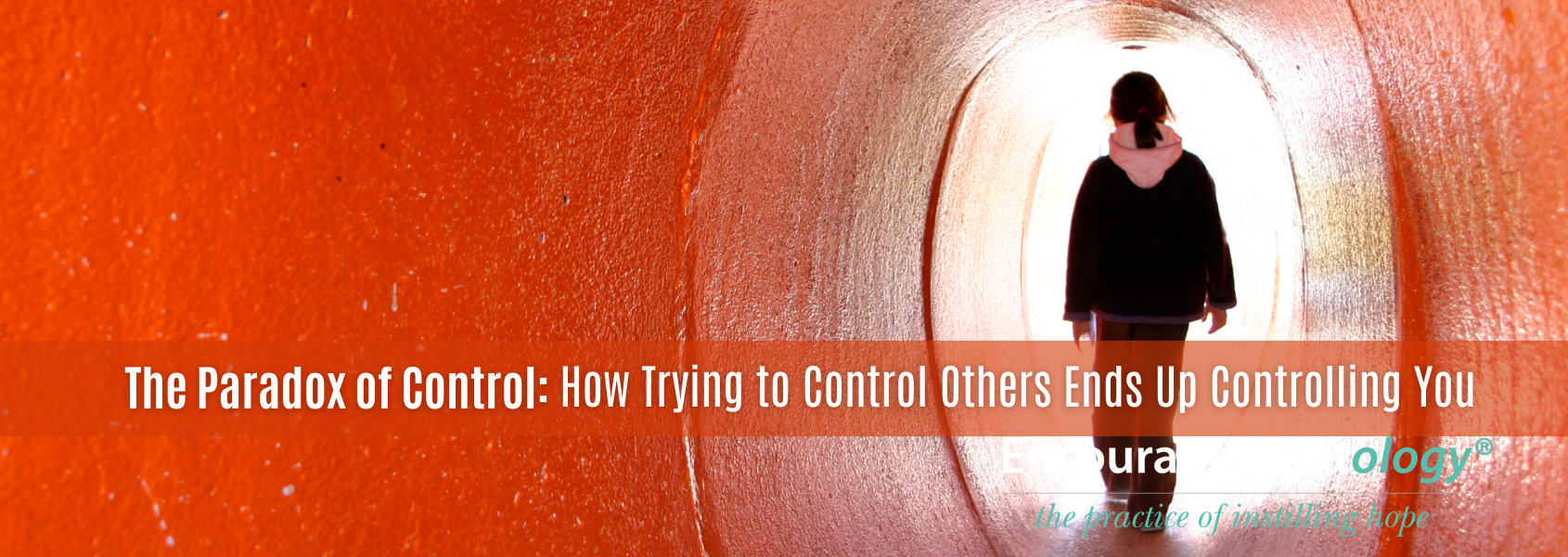SHOW NOTES:
On this show…we are exploring the paradox of control and how trying to control others ends up controlling you. Have you ever wondered if your well-intentioned help might actually be a bit too much? It’s easy to blur the lines between being supportive and being controlling without even realizing it. Sometimes, what we see as helping might actually be holding others back. Slippery slope? I don’t want to give you another thing to stress about but it’s easy to go from helping to controlling because our desire to see things done well or protect those we care about can lead us to overstep boundaries. What starts as genuine concern can quickly turn into micromanagement, especially when we feel responsible for the outcomes or anxious about losing control.
So let’s dive into the subtle differences between helping and controlling, and explore how we can make sure our good intentions truly empower those around us. Curious to see where you stand. Let’s find out together!
I always thought I was being helpful…always until I was able to get some perspective and see the difference. It’s ok if you’re not there yet, that’s the journey. The fact that you are committed to getting a better vantage point and some positive alternatives to some of life’s challenges and a HUGE first step. Remember the saying, “The road is paved with good intentions”? Well it’s actually referring to the road to hell but I think it can apply here too because it means, the difference between what someone intends to do and the outcome of their actions. Maybe you initially jumped in to help and maybe you wanted to control the situation from the start and the lines were just a blur. Let’s sharpen the focus as we figure out the difference…
Figuring out if you’re actually being helpful or starting to be a bit controlling takes some self-reflection and thinking about your motives and how your actions affect others. Here are some ways to check yourself:
- Check Your Motives
- Ask Yourself: Why am I offering help or advice? Is it because I genuinely want to support this person, or because I feel anxious if things aren’t done my way?
- Helpful: If your intention is to empower the other person and you’re okay with the outcome, even if it’s different from what you would do.
- Controlling: If your intention is to ensure things are done according to your standards, or to alleviate your own discomfort or anxiety.
- Consider the Other Person’s Autonomy
- Ask Yourself: Am I allowing the other person to make their own choices, or am I trying to steer them toward what I think is best?
- Helpful: If you respect the other person’s right to make their own decisions, even if they choose differently than you would.
- Controlling: If you’re pushing your agenda, making decisions for them, or not giving them the space to make their own choices.
- Observe Their Response
- Ask Yourself: How does the other person react when I offer help or advice? Do they seem appreciative, or do they appear uncomfortable or resistant?
- Helpful: If the other person feels supported, empowered, and grateful for your input.
- Controlling: If they seem frustrated, distant, or resistant, it could be a sign that they feel smothered or undermined.
- Reflect on Your Emotional State
- Ask Yourself: How do I feel if the person doesn’t take my advice or doesn’t accept my help?
- Helpful: If you’re at peace with their decision and don’t feel the need to push further.
- Controlling: If you feel irritated, anxious, or disappointed when they don’t follow your guidance.
- Assess the Frequency and Context
- Ask Yourself: How often am I stepping in to offer help or advice? Is it in situations where it’s truly needed, or am I doing it constantly, even when not asked?
- Helpful: If you offer help selectively, in situations where it’s genuinely needed, and when the other person asks for it.
- Controlling: If you find yourself frequently intervening, even in situations where the other person is capable or didn’t ask for assistance.
- Solicit Feedback
- Ask Them: How do you feel about the help or advice I’m giving? Do you feel supported or overwhelmed?
- Helpful: If they express that your support is valuable and that they feel empowered.
- Controlling: If they indicate that your help feels more like pressure or that they feel micromanaged.
- Evaluate the Balance of Power
- Ask Yourself: Am I trying to maintain control or power in this situation, or am I empowering the other person?
- Helpful: If your actions encourage the other person’s growth, independence, and self-confidence.
- Controlling: If your actions are more about maintaining control or ensuring things go your way.
CHALLENGE: Recognize where your well-meaning actions might be crossing into control and take steps to shift toward empowering others. By embracing true personal responsibility, you’ll build stronger, more trusting relationships that allow everyone to thrive.
I Know YOU Can Do It!

